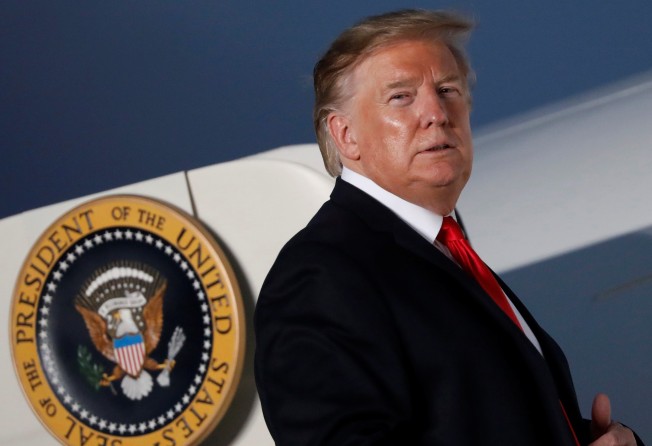By targeting China, US heightens risk of another cold war
- Donald Trump says he is trying to create a fair playing field, but his actions against Huawei and other tech giants can also be seen as a way to crush competition and debase globalisation

The Trump administration claims its trade war with China is about creating a fair playing field for doing business. Its bans against Chinese technology firms, equipment and products seemingly point to a different goal. Further reforms are sought from Beijing to widen market access for American companies and exports. But targeting Huawei and other tech giants can also be viewed as being about crushing competition and debasing globalisation.
A blacklisting of Huawei and 68 subsidiaries by the US Commerce Department to prevent it buying parts and components produced by American firms without approval is likely to cut the firm off from the software and semiconductors it needs for its products. The department has given a 90-day extension so that the Chinese tech company and its suppliers can adjust. Founder and chairman Ren Zhengfei contends that there will be minimal disruption due to stockpiling and innovation, but Google’s suspension of business could initially prove problematic; its services and applications will not be available for new smartphones and they are standard features on Android models outside the mainland. He was also at pains to calm growing nationalist fervour, contending people should buy Huawei’s products because of their quality, not their origin.
Showing the direction Washington is taking, the US Department of Homeland Security has turned to Chinese-made drones, warning that they pose a security threat. It is the same argument made against Huawei and other tech firms – that Beijing has access to the information gathered by their equipment and will use it for spying. Such claims have been repeatedly denied and are unproven.
Huawei is a world leader in telecoms able to provide technologically advanced and cost-effective next-generation 5G networks and equipment, and it is the second-biggest producer of smartphones with an eye on ousting Samsung as the front-runner next year. SZ DJI is the world’s largest manufacturer of consumer drones in a fast-growing global sector. Making unproven accusations and cutting supply chains can impact the global growth of such firms. But the targeting of Chinese firms will also prompt them to strive to take control of all aspects of production, robbing US suppliers of business, while imposing bans denies choice for consumers.
Isolating markets is a regressive approach to economic and technological development. It also hampers China’s reforms; Huawei and other private companies with global ambitions have been champions of the country’s wider opening up, but the US actions are punishing them. Targeting China in such a way is also giving greater voice to nationalists, raising the spectre of even deeper divisions between China and the US and heightening the risk of a new cold war.